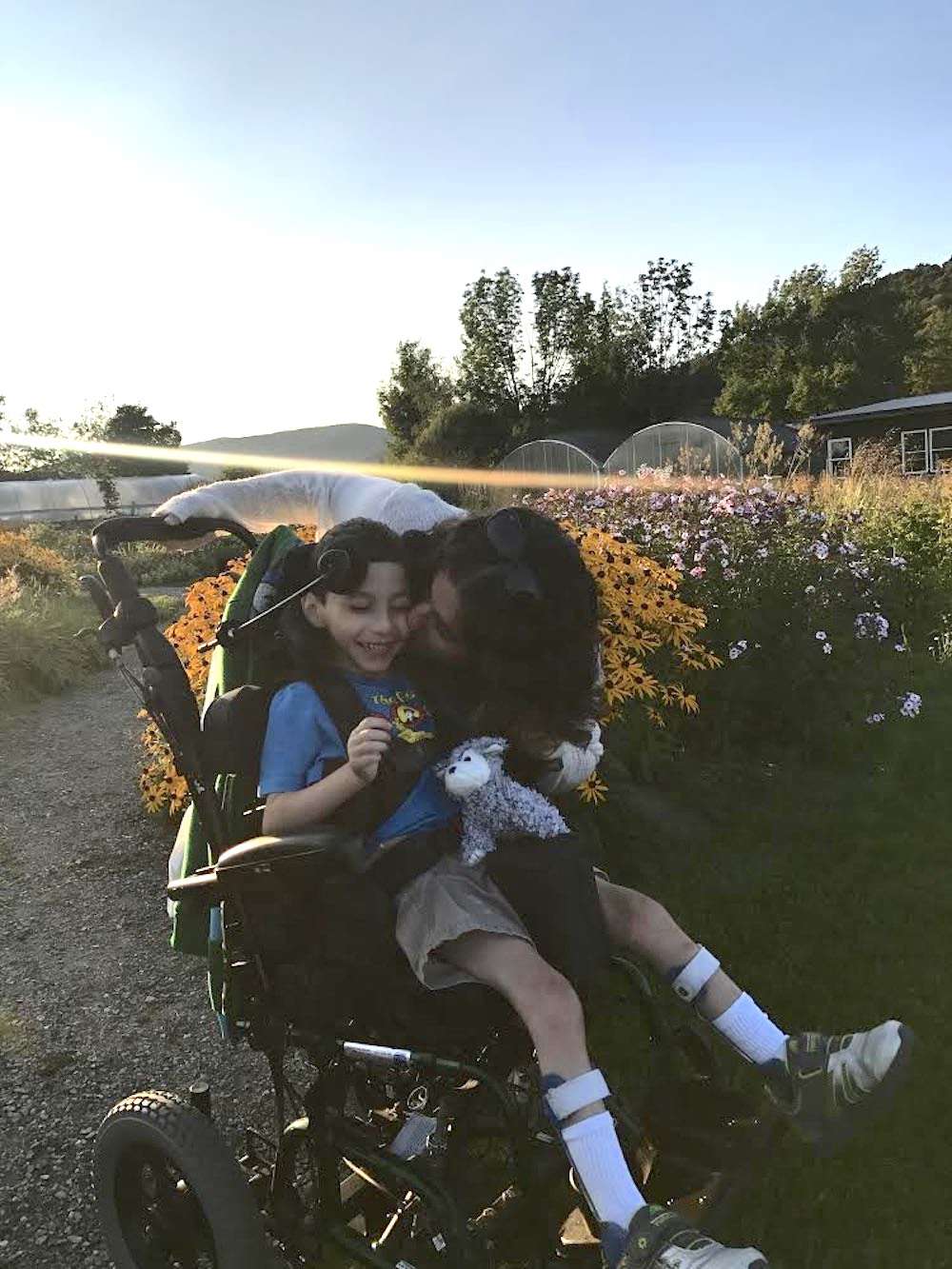In 2012, my second child, Henry, was born with a disability: while pregnant with him, I was infected with a common virus called cytomegalovirus (CMV), which affected his brain.
According to the Centers for Disease Control and Prevention (CDC), about 1 in 200 babies are born with a condition called congenital CMV, and of those, about 1 in 5 will have birth defects or other health problems.
Over the years, complications arose and the list of health care providers we saw to support Henry grew. Currently, Henry sees nine doctors, and we see many of them on a quarterly or biennial basis.
Finding a doctor you like is hard. Finding a doctor for a child with a disability is even harder. Because we see his team frequently and rely on them so much, it’s important to find people we trust who we feel will best support him. And finding the right medical professionals has made a huge difference in both our lives and Henry’s care.
Here are some of the traits, characteristics, and qualities I look for in an educator for my son with disabilities, and encourage other parents to look for the same.
Providers who think beyond barriers
Henry can’t walk or talk, but he’s intelligent and has a keen awareness of his surroundings. I’m always looking for caregivers who can work well with Henry despite his inability to communicate verbally. They see his cheeky sidelong glances when he’s in a bad mood and his responsiveness when he’s interested.
A smart doctor can tell when Henry is doing well and when he isn’t. He can see beyond his disability and see the child for who he is, which reduces the pressure on me as a parent to bridge the communication gap. I’ve also found that doctors’ recommendations are often better because they’re not based solely on a diagnosis.
Doctors with patient-friendly manners
During my first meeting with the nurses and doctors, I explain if there have been any changes in Henry’s health since our last appointment, but once the appointment begins, the conversation shifts from me to my child. At that point, the professionals need to explain what is going to happen to Henry. It’s a good idea to ask for demonstrations before touching him and to explain that he may be hurt or pinched lightly.
When doctors show Henry respect, we both feel more at ease. Henry feels more relaxed during the appointment. This makes him feel more like himself, which makes it easier for them to diagnose and treat him. The next time Henry sees the same doctor, he will look forward to a positive experience.
A provider always available
Easy and open communication is important in any relationship. When you’re relying on your doctor’s advice and recommendations, it’s important to be able to contact them with follow-up questions or concerns. Sometimes you need a prescription or letter of medical necessity to order equipment. Sometimes you just forget to ask a question during a consultation.
For us, the most collaborative doctors are those who are easily reachable by email (or portal message). Of course, we respect each other’s time, which translates into fast and efficient support outside of consultations.
Open-minded provider
We are always looking for new ways to help Henry continue to thrive. Thinking outside the box is key. Recommending new types of treatments may help Henry make the most of his recent progress. What would have been difficult a few years ago may now be effective.
For example, Henry recently received a new diagnosis and is on new medication. As a result, he is feeling better and has started to move in new, fun ways. Because of this, we are now able to put him on a supported treadmill. Years ago we tried this, but he just couldn’t bring himself to move. Now he is stronger, more determined, and reaping the benefits of the things we gave up on in the past.
It is important to continually reevaluate your options and work with a willing healthcare provider to ensure treatment is applied when it is most effective.
A provider who shares joy
Henry’s accomplishments are atypical. He hasn’t achieved many milestones appropriate for his age. However, we do celebrate “inch” milestones in a big way. Henry is very proud of himself and loves to brag.
Last month we saw one of Henry’s specialists, whom we hadn’t seen in quite some time, and we explained his recent achievements to him, and the doctor was genuinely pleased to see the improvements in his athletic ability.
The celebration is all the more important as many doctors and therapists are constantly highlighting the issues Henry faces. The positive feedback from medical professionals makes it easier for us to move things forward, such as Henry’s many physiotherapy appointments.

